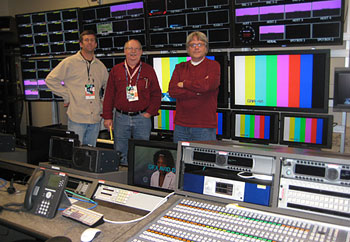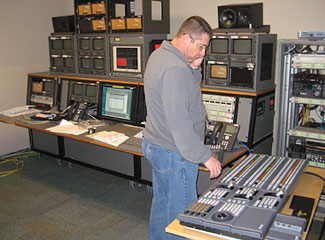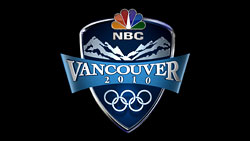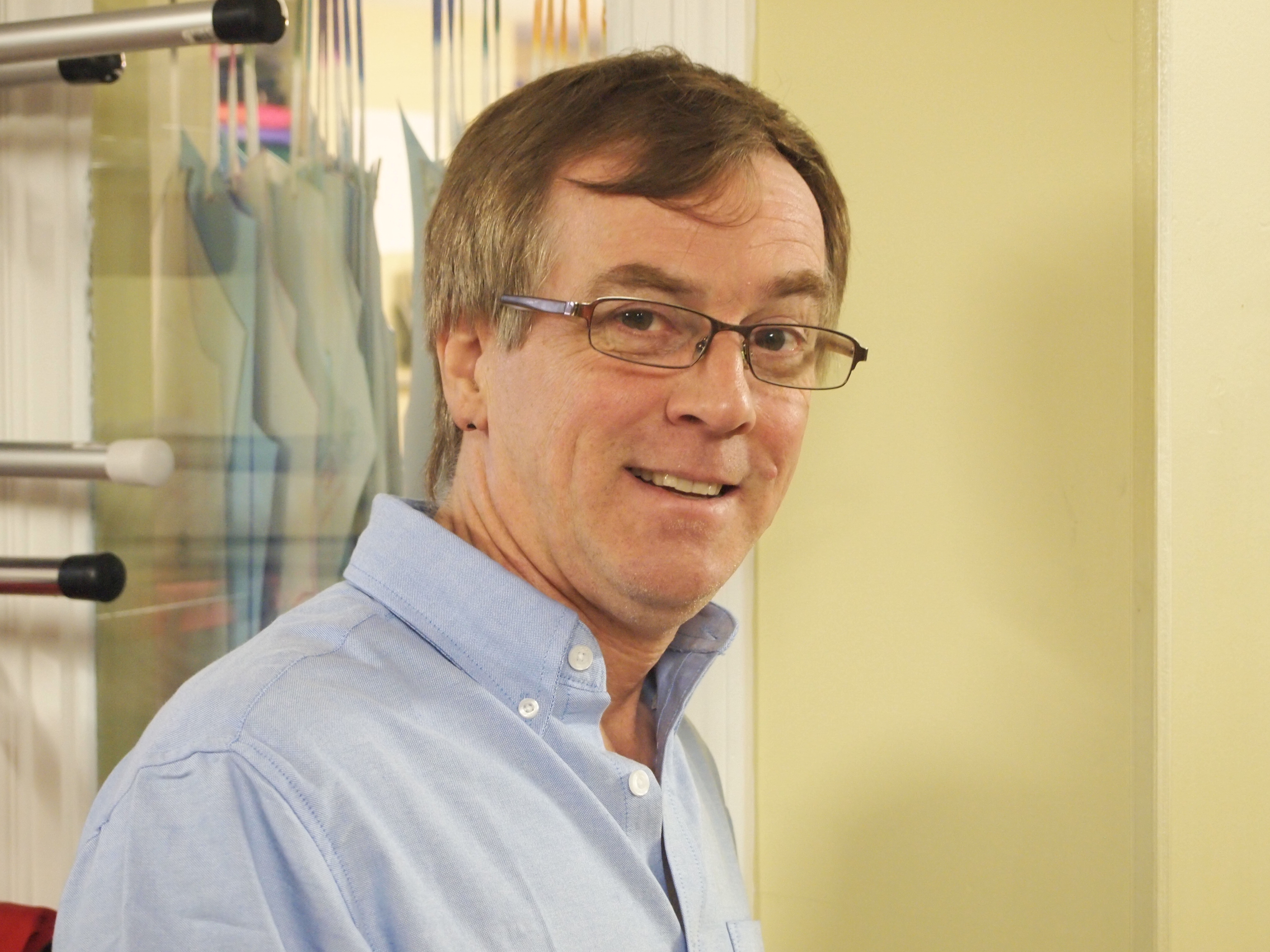NBC Set for First All-HD Winter Games

(L to R): Aaron Stevens, Ascent Media Installation Supervisor, Jim Kraenzel, Ascent Media Project Manager, and Terry Adams, VP of IBC Engineering, in the NBC IBC facility.
VANCOUVER, BRITISH COLUMBIA
For the world, the 2010 Winter Olympics begin on Feb. 12. But for Dave Mazza, NBC Olympics' senior vice president of engineering, the Games have been underway for two years. Along with a 30 person crew of engineers and project managers, the NBC team has been preparing the network's broadcast facilities for the first all-HD Winter Games. These include its main studio at the International Broadcast Centre (IBC) on the downtown Vancouver waterfront, plus live broadcast positions at most of the downtown Vancouver venues and the ski slopes of nearby Whistler.
"We deploy our facilities in a staged process," Mazza told TV Technology from Vancouver. "We began with the 50,000 sq. ft. IBC facility, then move out to the various venues as they become available. The key is to deploy equipment in logical phases, both to keep the work organized and to minimize rental expenses."
NBC'S APPROACH
When TV Technology spoke with Mazza, NBC's crew was in the process of outfitting the IBC space. "We are about 70 percent complete," he said. "The racks, routers, intercom and matrices are all in place and connected. The Sony MVS-8000G switchers are running, along with the Calrec Omega audio console. Most of the edit rooms and monitor display walls have also been installed. We're at the point now where we can begin the process of our maintenance people starting to go over the all equipment and testing to make sure everything is set up correctly."

Sony Engineer Mike Piatti tests the Sony MVS8000G switcher in the Edit Room Still to come were "the big ticket items," Mazza added. These include the Sony HSC-300 HD studio cameras equipped with Canon Broadcast lenses. The EVS and Omneon video servers, and the Chyron HyperX effects generator were yet to arrive. Also just now being unpacked and installed are 150 Sony PDW-F1600 XDCAM optical recording decks, and five XDCAM/HDCAM linear editing suites.
Although much of this will have to be configured onsite, the good news is NBC's Avid NLEs will be ready to go out of the box. "We have nearly 40 of these units in Vancouver, running Symphony on Nitris and Media Composer," Mazza said. "We have been able to preconfigure them to save time."
NBC's equipment staging area is located in a 50,000 sq. ft. Vancouver "field shop" near Burnaby close to the Games site. "It would cost too much to rent warehousing space at the IBC," said Mazza. "So we have the field shop, where all of the equipment comes into; be it racks directly from China, electronics from our East Coast field shop in Granby, Conn., or locally-sourced rentals. We receive it, preconfigure it as much as possible and then pack it onto pallets for delivery to the various venues. For instance, we might have 20-30 pallets of equipment assigned to the Alpine venue alone."
Still to be delivered are the leased OB trailers. NEP Broadcasting's ND-3 is covering the Opening and Closing ceremonies at BC Place, plus hockey games at Canada Hockey Place next door. Figure skating at the Pacific Coliseum is assigned to NEP's NCP 11 and NEP's smaller SS-14 "Supershooter" is covering speed skating at the Richmond Olympic Oval.
Freestyle skiing and snowboarding will be shot at Cypress Mountain (West Vancouver) using Game Creek's Freedom Mobile Unit And skiing at Whistler will be covered by NEP's SS-20 trailer.
Sony HDC-1400s will be used at the Whistler Sliding Center. Venues that permit short Triax runs, like Curling, will rely on Sony HSC-300 camera system instead. Over 20 Sony PDW-800 XDCAM camcorders will be used for mobile ENG, connected by Gigawave COFDM RF transmitters provided by Total RF.

GETTING READY FOR THE SHOW
As the Opening Ceremonies approach, NBC's senior technical managers have begun taking charge at the various venues. Each one is responsible for making sure that the proper NBC equipment is delivered, installed, checked and ready to go by Feb. 12.
"We tend to have new people arriving every Monday from here on out," said Dave Mazza. "As those who have been here for a number of months begin to burn out, the fresh arrivals help to keep the energy going."
The last people to arrive will be the camera operators, EVS operators, technicians and audio and video engineers; roughly 1,200 in all.
"Most of the operations and production people arrive anywhere from 4-10 days prior to the event starts, to get their hands on the equipment and feel comfortable before everything starts," Mazza said. "We have been briefing people beforehand, to get them up to speed. We set the on-site training time based on how new the equipment is to the operators—this could be anywhere from 3 hours to 3 or 4 days before they are comfortable."
Having spent two years on this project, Dave Mazza knows how overwhelming Olympic TV coverage can be to manage and deploy. "The key to getting through this is to pace yourself," he said. "You have to do it in a measured, methodical manner that doesn't wear you out."
That said, Mazza is totally focused in the moment and not thinking past the Vancouver Games. "We're working up to the Opening Ceremonies, and then the two weeks of events coverage," he told TV Technology. "It's the reward for all the hard work. We're getting more excited every day, and anticipating just how great the coverage is going to look at home."
Get the TV Tech Newsletter
The professional video industry's #1 source for news, trends and product and tech information. Sign up below.
James Careless is an award-winning journalist who has written for TV Technology since the 1990s. He has covered HDTV from the days of the six competing HDTV formats that led to the 1993 Grand Alliance, and onwards through ATSC 3.0 and OTT. He also writes for Radio World, along with other publications in aerospace, defense, public safety, streaming media, plus the amusement park industry for something different.

